-
The Start of Something Beautiful by Zack Be
It is hard to imagine anything much more concerning than social media influencers on a space station, but Zack Be has managed to make something worthwhile on that premise.
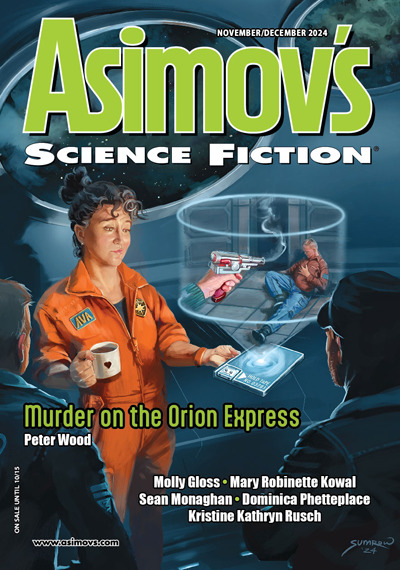
In a future where AI content is dominating social media, Apple has a space station orbiting the Moon and have sent two social media stars up there to create original real content. The influencers are Zephyr and Seven, and while they apparently did had more than a year of training, they are for the most part far from real astronauts. With them they have Daniels, a proper astronaut and the onboard AI called Mentor. As these stories go, something goes wrong as the station gets hit by micrometeorites and one of the influencer will need to step up their game.
While the story is pretty recognizable for anyone familiar with these type of rescue stories, which normally mostly gets printed in Analog, I most admit I was fully engrossed in the exciting drama that unfolded over the pages. It has proper tension and interesting characters within the limitations of a short story length.
Read in Asimov’s November/December 2024
Rating: 3 -
Mirrorstar by Sean McMullen
A new Sean McMullen story is always and one that delivers a fresh original angle on first contact is even better. Like in “Saving Galileo” telescopes are central to the plot. Only this time much much bigger. Size of a planet times bigger.
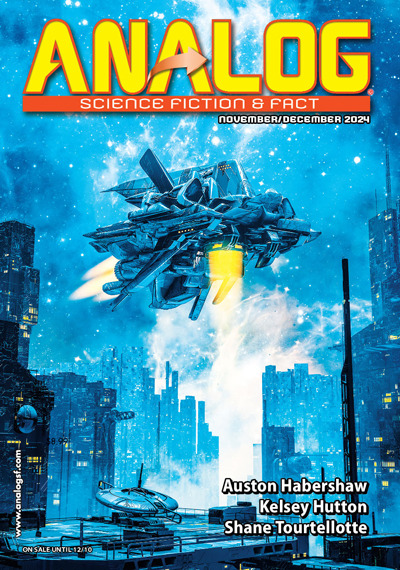
We follow Dr. Connell on the large telescope construction Mirrorstar that is built in the outer skirts of the solar system. Humans have observed similar gigantic telescopes in other solar system and have decide to build one too. It is tracking a planet 33 light years away and the story begins with Connell being informed of a dead crew-member and he has to investigate what is the first death on this mission so far.
The dead crew-member appears frozen, but maybe she is not entirely dead. She appears to have been changed through something coming through the giant telescope from the far away planet. While this may sound a bit like a horror setup, it fits mostly within the hard sf category. There is a methodical approach to events with logical conclusions.
What especially shines is the depth of the characters. All with interesting back stories and well developed personalities with strength and weaknesses. As much as I enjoyed the concept McMullen presents here, I do wish he could have used for something greater. But this may very well be just a first setup for following stories on Mirrorstar.
Read in Analog November/December 2024
Rating: 4 -
Singleton by Greg Egan
The latest couple of stories I have reviewed here have involved how an AI “learns” in some fashion. This story by Greg Egan from more than 20 years ago has a different approach, because the buzzword of that time was quantum and not language models. However, since it is Greg Egan, there is substantial weight behind the concepts.
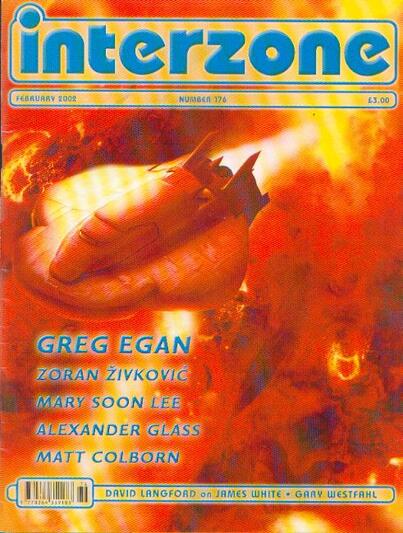
The story follows Ben through his life in segments approximately every ten years. He works with experimental quantum computers that leads to making of AIs. He and his wife can’t have children, so they set out to create an artificial baby with a quantum chip as a brain, but otherwise physically resembling a real child allowing it to grow and learn in phases.
That is just the plot, as the meat of the story is equally as much about the advances in quantum physics theory and appliance over the decades into the future. Ben’s work opens up theories on consciousness, free will and the many worlds interpretation. Egan is as always great at combining heavy scientific concepts with a human story. But I did think those qualities only surfaced mostly at the end of the story, and the long way to that conclusion was only halfway interesting.
Read in The Year’s Best Science Fiction: Twentieth Annual Collection, edited by Gardner Dozois
Originally published in Interzone #176, February 2002
Read online at gregegan.net
Rating: 3+ -
The Compromise by Tom R. Pike
Tom R. Pike continues with thought experiments on where AI might lead us, like he did in the last issue of Analog with Prompt Injection. This story is set in some undefined future where humans and AI coexists but the AIs are heavily restricted under the so called “compromise”. Now the political agreement is up for a vote again.
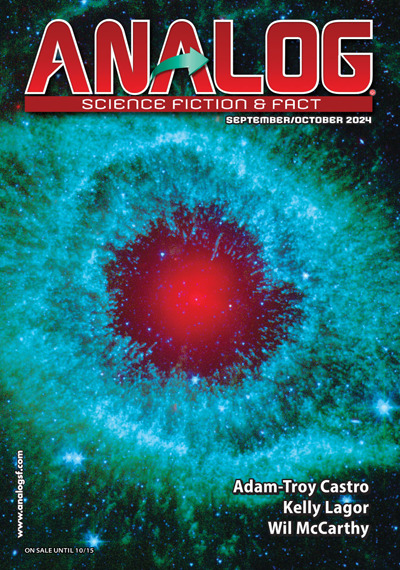
The story mainly consists of conversations with heavy expositions to explain the current compromise and political discussions of various “what if”-scenarios that come from the conflict between humans and AIs. Here is an example that illustrate this:
“The Compromise was a miracle,” Sayid said. “The most likely outcome of the development of advanced AI, especially AI developed by corporations, was conflict. In those early days, millions of human workers were suddenly displaced, many without any kind of safety net; AIs, then completely unregulated, were used for scams, scandals, and scabs. This tempted many humans at the time toward fascism. And remember, this was before the nuclear stockpiles were dismantled.”
p. 64
While this is fine and fits naturally within the story, it is still basically just various extrapolated arguments from the present day AI debate and while I am sympathetic to the overall message here, it doesn’t quite work as a story in its own right. There is some drama with the various political factions, and it is possible to read in some commentary on the current political climate in the USA, but it isn’t really enough to elevate this story beyond some expanded AI thought experiments.
Read in Analog September/October 2024
Rating: 2+ -
The Trolley Solution by Shiv Ramdas
This follows straight after Qiankun and Alex in The Best Science Fiction of the Year - Volume 7 and it is also about a teaching AI.
The story follows Ahmed, a professor at a university in India teaching creative writing. Management has decided that an AI can basically replace human teachers, and Ahmed is tasked with “showing it the ropes”.
Published only 3 years ago this is barely science fiction anymore, as educational institutions across the world has to deal with AI technology one way or the other. The story here is very much sort of “on the nose” when it comes to its message on why it is a terrible idea, and it is really hard to disagree here. However, I did become slightly annoyed at the lack of nuance and complexity in the presentation here. To its credit though, there is an interesting twist or unexpected turn of events in the end, that I didn’t actually see coming and in a way reverses the indiscreet tone of the rest of the story.
Can’t really make up my mind about this, but it is worth reading
Read in The Best Science Fiction of the Year - Volume 7, edited by Neil Clarke
Originally published in Slate
Rating: 3 -
Qiankun and Alex by Hao Jingfang
This story translated from Chinese by Xueting Christine Ni is a bit similar to Machine Learning with a small story about an AI that learns about humans through interaction with children.
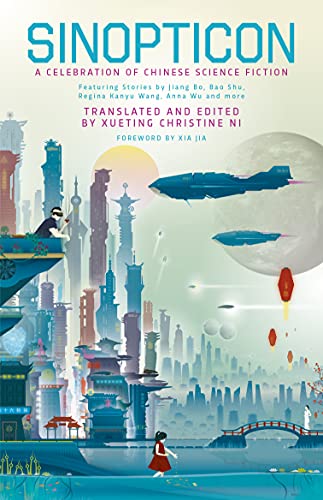
The AI is sort of a functioning babysitter for Alex as he plays around the house, chasing the cleaning robot or interacting with screens. The AI is observing and noting many things as incomprehensible with how the kid’s behaviour isn’t exactly logical. But the AI actually manages to learn something new from this and forms it’s own insight and motivation.
This is a cute little story with a positive upbeat feeling. It may not be super deep or groundbreaking, but just a sweet little story about the childlike joy of learning about the world.
Read in The Best Science Fiction of the Year - Volume 7, edited by Neil Clarke
Originally published in Sinopticon: A Celebration of Chinese Science Fiction
Rating: 3 -
Machine Learning by Nancy Kress
Reading Nancy Kress’ take on where machine learning might take us in a story from 2015 is a testament to how good she is at seeing where current technology trends might lead. Or maybe it is just because she got an insight view into what Microsoft was working on at the time for this anthology. In this story we follow a researcher trying to make an AI model better at reading human emotions.

In this future a terrible virus has killed millions of kids across the world, and the researcher Ethan lost his daughter to it. He buries himself in work with an AI program by training it with letting the program teach kids, where the kids indirectly also teaches the program. This narrative opens up interesting themes about how humans deal with emotions and whether everything can be deduced to just data points for a machine learning AI.
While I do love stories that explore such themes and Kress is often the best at that sort of thing, it comes of as mostly half finished here. The world building is too complex for what the story really needs, there are too many characters that remove focus from Ethan and while it did like the rather pessimistic ending, it did left me wanting for more character depth.
I think this could actually be a good basis for a movie script with an actor that excels in subtle acting, but the story is just an intriguing concept for something more.
Read in Future Visions: Original Science Fiction Inspired by Microsoft
Rating: 2+ -
The Time Capsule by Alice Towey
There is something fundamentally compelling about imagining who will find the probes we send into space. This short story tells such a story set in far future that has lost most of advanced technology.
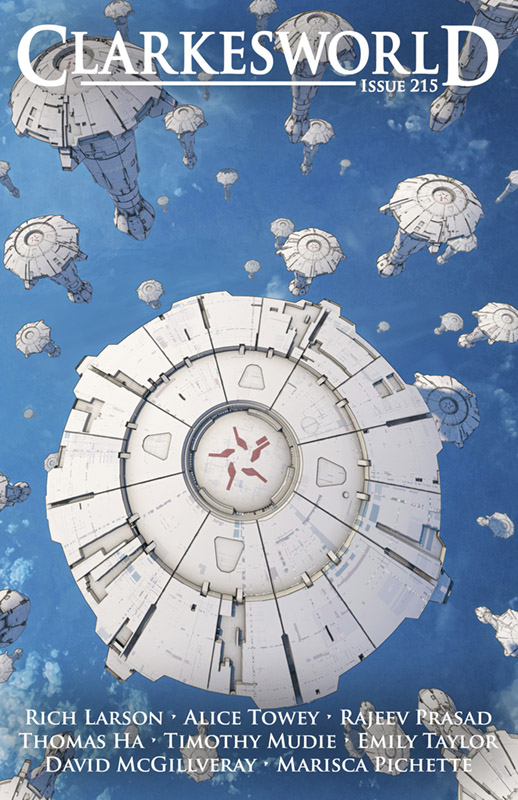
Corrinne finds a fallen probe in the middle of a desert and she is able to activate a video recording from it. A woman appears on screen stating the date as February 11, 2089 and that the probe will go to the Kuiper Belt and she recorded this journal hoping someone will find it some day. The world Corrinne is in is hundreds of years later than that and in a ruined world where people know of this type “old tech”, which can be valuable but should be dealt with caution. Corrinne knows she has something valuable here that could be traded in, but she also comes to feel a connection with this woman on the video recordings.
While there is a plot about what happens to the probe, the real story is about those two futures and in particular what we can deduct about the 2089 world. Corrinne might live in an post-apocalyptically future, but the real tragedy is told in the video journal from the probe.
Read in Clarkesworld August 2024
Rating: 4 -
Spark of Genius by Michael F. Flynn
I previously reviewed “If It Ain’t Broke” by Maya Kaathryn Bohnhoff from the same issue of Analog and this story by Michael F. Flynn deals with a surprisingly similar theme of what is basically generative AI and its use in literature.
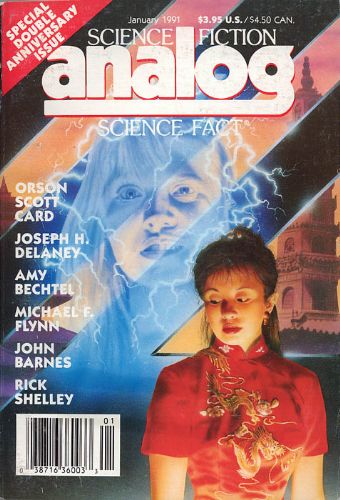
Ken has handed in his manuscript for his latest novel and his editor is full of praise saying that he has finally found his voice. Ken is however having personal doubts as he has created an artificial neural net, fed it with tons of books and it has written this novel for him. It is almost a 1:1 a description of current generative AI models.
As a fairly short piece, it doesn’t go much further than setting up the basic premise and the open ended question for what this might mean for humans and art. The following quote from the story emphasizes what many feel is at stake with how the current AI technology is going:
“Except it wasn’t his voice, at all. It was the voice of a machine. The machine had found the words and the machine had put them together into brilliant metaphors and images; into crisp dialogue that crackled with irony. The machine had learned something by studying the works of the greats; some spark of genius that had always eluded him.”
p. 144
In this story, the machine is able to create a story with a “soul” - which in itself becomes a philosophical question what that is, but it is the generally consensus that current generative AI models are not on the level of good human writers. That doesn’t mean the threat of being replaced is not there and the story briefly touches on what defines creativity, which I would argue is more than just getting input from previous works and re-sample them into a different output.
Read in Analog January 1991
Rating: 3+ -
The Woman Who Destroyed Us by S.L. Huang
What defines a persons identity is a one of my favorite philosophical questions to see explored in literature or film. This story takes a very direct and confrontational approach to this topic.
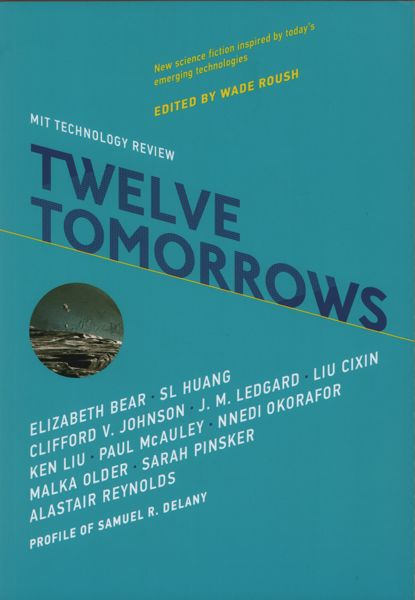
In a near future a technology exists that can basically “fix” peoples mental problems with a brain implant. The story follows Maggie who feels that this implant killed her son Henry. Not in the literal sense, but she thinks it has changed him so much that he is no longer the same person. Henry had various diagnoses before the implant and he is very happy with who he is now. Nonetheless, Maggie sets out to find a way to get revenge against the technology’s inventor.
There is so much potential in this topic and the story does handle all the dilemmas in an engaging narrative. It is also just rather surface level, as we follow Maggie and her internal critical dialogue of the whole procedure that sometimes reads like an opinion piece. I am missing some emotional core or exploration of why she feels her son is gone as a person, even though he is alive and well. For me as a reader, I was mostly engaged intellectually with the dilemma - not emotionally. A story like “Second Person, Past Tense” by Daryl Gregory covers similar themes and with more direct character insight in my opinion.
That is also somewhat unfair to the author, me criticizing the story for wanting it to be something different than it is. Huang wanted to write this story in this manner and she succeeds. Plenty of food for thought on how we think about mental diagnoses and whether that should be a defining feature of a person.
Read in Forever Magazine, August 2024
Originally published in Twelve Tomorrows
Rating: 4